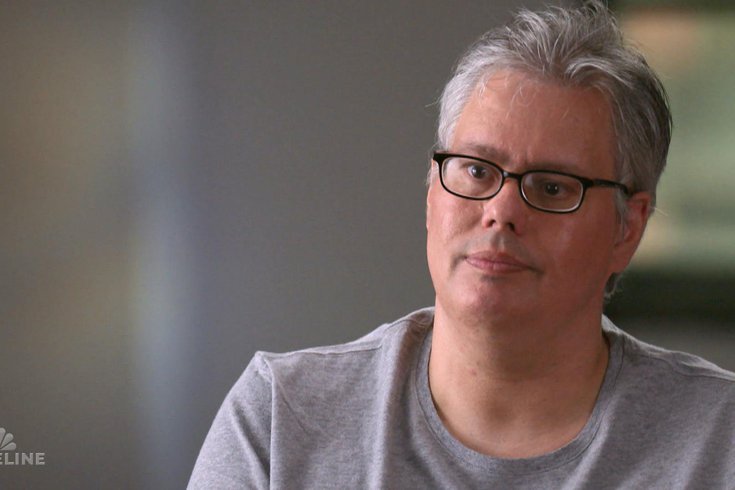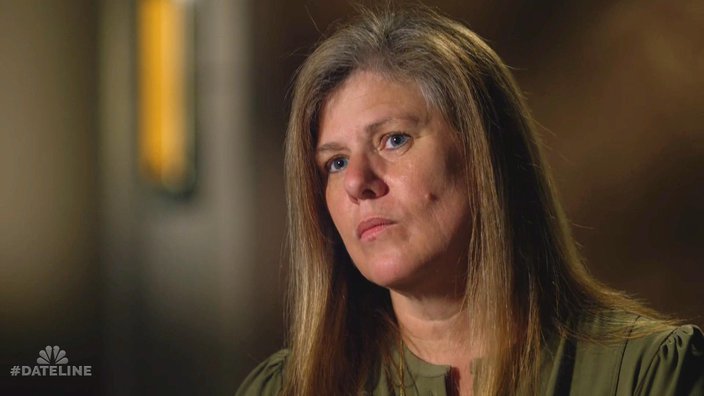
August 15, 2021
 Contributed Image/Dateline NBC
Contributed Image/Dateline NBC
Walter Ogrod spent 28 years in jail after he was wrongfully convicted of killing 4-year-old Barbara Jean Horn in Northeast Philadelphia in 1988. He spoke with Lester Holt about the case for an episode of "Dateline NBC" that aired Friday, Aug. 13, 2021.
Walter Ogrod drove himself to Philadelphia police headquarters for an interview with detectives investigating the gruesome July 12, 1988, murder of Barbara Jean Horn, a 4-year-old whose body was found inside of a cardboard television box near her home in the Castor Gardens section of the city. Four years had passed, and authorities had identified Ogrod as a suspect in the cold case.
His friend urged against doing the interview without an attorney present, but Ogrod said he had nothing to hide. Fourteen hours later, authorities had Ogrod sign a false confession in which he admitted to killing the young girl. He was eventually convicted of premeditated murder and involuntary deviate sexual intercourse and spent 28 years in prison, 23 of those years on death row, before being exonerated and released in June 2020.
"They says, 'We believe that you killed her (and) you’re blocking your mind. We’re gonna help you get it out, you know, your memories, and we don’t care if it takes all night and the next day,'" Ogrod recalled to Lester Holt during a special edition of "Dateline NBC" about the case.
"They kept on taking pictures of Barbara Jean’s body and putting them right in my face," he continued. "And (they'd) say, 'Remember, this is what you did. This is what you did. You killed a child. We’re gonna do everything we can to help you remember it.'"
"And you're going along with this?" Holt asked.
"I’m like out of it," said Ogrod, who had worked an overnight shift as a bakery truck driver and hadn't slept in 30 hours. "I’m like, ‘What’s going on around here?' … When I started getting a little more conscious, I mean, yeah. I started like, 'What the hell did I just do?'"
Titled "The Investigation," Holt's deep dive into Horn's murder and the wrongful conviction of Ogrod aired Friday night on NBC. The special episode of the network's weekly true crime show features interviews with Horn's parents, Philadelphia District Attorney Larry Krasner and reporter Thomas Lowenstein, whose 2004 book shed light on inconsistencies in the investigation and the mounting evidence that Ogrod did not kill the young girl.
"The story that the detectives tell about Walt’s confession is that they never interrupted him," Lowenstein said. "He just poured out his heart to them and started crying and said to them, 'Officers give me a moment. You don’t know how hard this is for me. I never meant to kill that little girl.' For me, that was the moment it clicked. Not only had they dictated a story to Walter, they had dictated a frame of mind that he’s not capable of."
Viewers who are new to Horn's murder will be walked through every step of the case, which made national headlines from the day her body was found in Northeast Philly to the day Krasner's Conviction Integrity Unit secured Ogrod's exoneration after determining prosecutors used "false, unreliable and incomplete" information to pin the murder on him.
“In a case where you say, 'We got it wrong, and not only did we get it wrong, we think this person is innocent,' that ought to concern, scare anybody," said Patricia Cummings, the chief of the Conviction Integrity Unit.
Patricia Cummings is the chief of the Conviction Integrity Unit inside the Philadelphia District Attorney's Office, which helped secure the exoneration of Walter Ogrod in the Barbara Jean Horn murder case.
The hour-long special also details the two times Ogrod went on trial for Horn's murder. The first, in 1993, ended in a mistrial — and Horn's stepfather being led out of the courtroom in handcuffs after trying to attack Ogrod — when one of 12 jurors who had planned to acquit changed his mind. Three years later, the second trial ended in Ogrod being found guilty after the prosecution used a fabricated confession from a jailhouse informant, whose wife said he had a history of lying to help the DA's office score convictions.
During both trials, Ogrod maintained that he had been coerced into signing the false confession. Years later, Krasner's office uncovered that the prosecution presented fraudulent scientific evidence and withheld exculpatory evidence, including a personality profile that concluded Ogrod is a person who is easily manipulated.
"The biggest part of this problem is not just innocent mistakes," Krasner said. "The biggest part of this problem is the abuse of power."
"Once I had all the facts, I, in my heart, believe that he is the wrong man and he did not do this," added Horn's mother, Sharon Fahy. "... I didn't want him to die behind bars."
The charges against Ogrod were dismissed when he was released from prison on June 5, 2020, although a bout with COVID-19 had some worrying he would die before that happened. Pennsylvania is one of 14 states that doesn't compensate people who are wrongfully convicted, meaning Ogrod would need to sue to obtain monetary relief.
The day the "Dateline" episode aired, Krasner's office announced that a grand jury had recommended criminal charges against the detective who led the investigation into Horn's murder, Martin Devlin, for his role in the investigation, wrongful conviction and 2016 retrial of Anthony Wright, whose innocence in a high profile rape and murder case resulted in a multimillion dollar settlement with the city. The DA's Conviction Integrity Unit has secured more than two dozen exonerations for inmates who were wrongfully convicted of serious crimes.
According to a report from NBC10 in May, Krasner's office identified two men as suspects in Horn's murder while investigating Ogrod's conviction. Cummings did not name the suspects to the TV station but said one was dead and the other was incarcerated in connection with another crime.
"We think that there is more evidence suggesting they did it than Walter Ogrod ever," Cummings said. "But it's not enough, and at least it's not enough at this point in time."
A Philadelphia police spokesperson told NBC10 in May that Horn's case had not been reopened because cold case detectives were helping investigate a surge of homicides in the city due to gun violence.
"The Investigation" can be streamed online by those with access to a cable or streaming TV subscriptions. The Barbara Jean Horn case also has been featured in a one-hour documentary called "Snitch Work" and on the HLN series "Death Row Stories."
 Contributed Art/Dateline NBC
Contributed Art/Dateline NBC